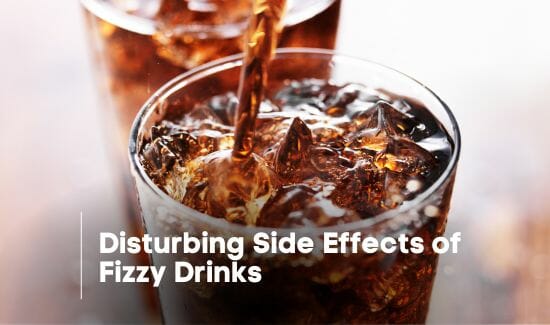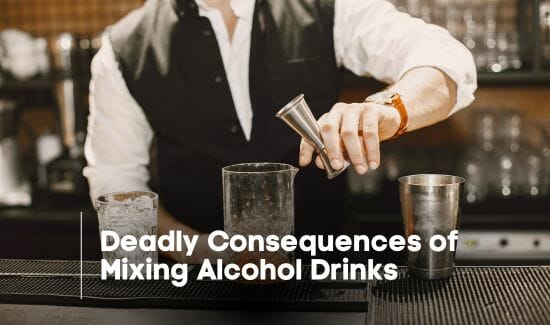
When it comes to consuming alcohol, many people may not give much thought to the types of drinks they are mixing together. However, recognizing the dangers of mixing different types of alcohol is crucial for understanding the potential risks to your health.
One of the primary dangers of mixing different types of alcohol is the potential for increased intoxication levels. Different alcoholic beverages contain varying amounts of ethanol, the main psychoactive compound in alcohol. When you mix different types of alcohol, such as beer and hard liquor, the body has a harder time metabolizing the ethanol. This can lead to a slower breakdown of alcohol in the body, resulting in higher blood alcohol concentrations and a greater degree of intoxication.
Another danger of mixing different types of alcohol is the impact it can have on the liver. The liver plays a crucial role in metabolizing alcohol, breaking it down into less harmful substances for elimination from the body. However, certain types of alcohol, such as hard liquor, have a higher concentration of toxins compared to beer or wine. Mixing different types of alcohol can overwhelm the liver’s ability to process and eliminate these toxins effectively, increasing the risk of liver damage over time.
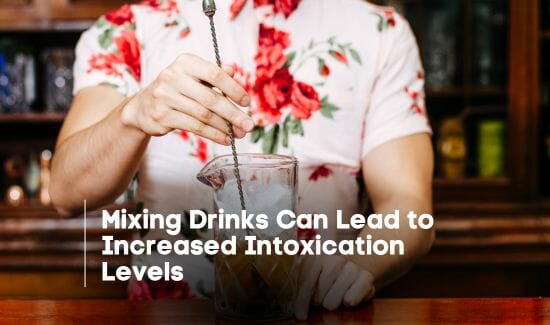
How Mixing Drinks Can Lead to Increased Intoxication Levels
Mixing drinks can have significant consequences on a person’s level of intoxication. When different types of alcohol are consumed within a short period, the effects can be exacerbated, leading to a higher level of impairment. This is mainly due to the way the body metabolizes alcohol. Each type of alcoholic beverage contains varying amounts of ethanol, which is the active ingredient responsible for alcohol’s intoxicating effects. When different drinks are combined, the body has to process a higher concentration of ethanol, leading to an increased rate of absorption and resulting in faster and more intense intoxication.
Furthermore, mixing drinks can also impact a person’s judgment and decision-making abilities. As the level of intoxication increases, individuals may find it more challenging to gauge their own level of impairment. This can lead to risky behavior, such as consuming more alcohol or engaging in activities that they would otherwise consider unsafe. The combination of different alcoholic beverages can impair cognitive function and decrease inhibitions, making it easier for individuals to make poor choices without fully considering the potential consequences. It is important to be aware of these risks and to consume alcohol responsibly to ensure personal safety and well-being.
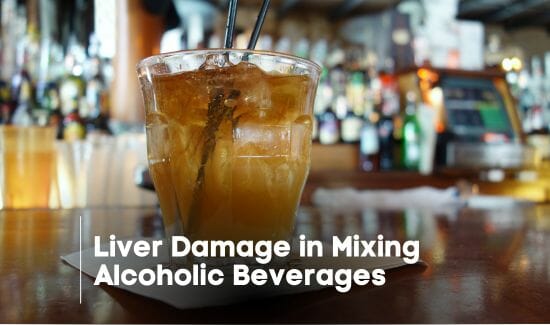
The Role of Liver Damage in Mixing Alcoholic Beverages
The liver plays a vital role in processing and eliminating toxins from the body, including alcohol. When alcohol is consumed, it is broken down by the liver into less harmful substances. However, excessive or prolonged consumption of alcohol can overwhelm the liver’s ability to metabolize it efficiently. This can lead to liver damage and a variety of related health conditions.
One of the primary risks associated with mixing alcoholic beverages is that it puts additional strain on the liver. When different types of alcohol are consumed together, the liver needs to work harder to process and eliminate the various substances. This increased workload can take a toll on the liver and contribute to the development of liver diseases such as fatty liver, alcoholic hepatitis, and cirrhosis. In addition to the direct damage caused by alcohol, mixing drinks can also lead to an increased risk of dehydration, which further impacts liver function.
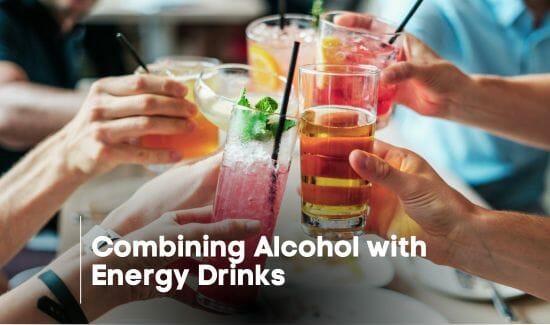
The Dangerous Effects of Combining Alcohol with Energy Drinks
Combining alcohol with energy drinks has become a popular trend among young adults. However, this seemingly harmless mix can have dangerous effects on the body. The combination of alcohol and energy drinks can lead to an increased risk of alcohol poisoning. Energy drinks, with their high caffeine content, can mask the depressive effects of alcohol, leading individuals to consume more alcohol than they would typically feel. This can result in a dangerous state of intoxication, where individuals may become more prone to reckless behaviors and impaired judgment.
Moreover, the combination of alcohol and energy drinks can have a negative impact on the cardiovascular system. Energy drinks contain stimulants such as caffeine and taurine, which can increase heart rate and blood pressure. When combined with alcohol, a depressant that slows down the central nervous system, this can put significant strain on the heart. This combination has been linked to an increased risk of heart palpitations, arrhythmias, and even cardiac arrest. It is crucial to understand the potential dangers and exercise caution when considering mixing alcohol with energy drinks.
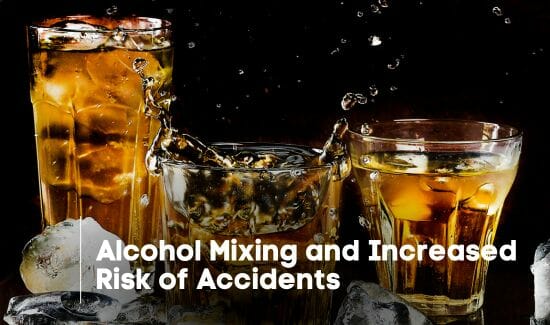
The Link Between Alcohol Mixing and Increased Risk of Accidents
Alcohol consumption, in moderate amounts, can impair a person’s judgment and coordination, increasing the risk of accidents. However, the risk is even higher when different types of alcohol are mixed. Mixing different types of alcoholic beverages can intensify the effects of alcohol on the body, leading to heightened impairment and a greater likelihood of accidents occurring.
When individuals consume different types of alcohol within a short period, their blood alcohol concentration (BAC) can rise rapidly, resulting in more pronounced physical and cognitive impairments. This is because the body needs time to metabolize alcohol, and consuming different types of alcohol slows down this process. As a result, coordination becomes compromised, reaction times are delayed, and decision-making abilities are impaired. The likelihood of falls, car crashes, and other accidents significantly increases when individuals mix alcohol, putting both themselves and others at risk. The consequences can be severe, ranging from minor injuries to fatal accidents, emphasizing the crucial need to understand the dangers associated with alcohol mixing and take appropriate precautions.

Long-Term Health Effects of Frequent Drink Mixing
Frequent drink mixing can have significant long-term health effects on individuals. One of the key risks associated with this behavior is an increased likelihood of developing liver damage. However, when different types of alcoholic beverages are mixed, the liver is put under additional strain as it needs to process a higher variety and quantity of substances. Over time, repeated exposure to this excessive workload can lead to liver inflammation, scarring, and even liver disease. It is important to note that the severity of the damage can vary from person to person, depending on factors such as genetic predisposition, overall liver health, and the duration and intensity of drink-mixing habits.
Alongside liver damage, frequent drink mixing has been linked to an increased risk of cardiovascular disease. Alcohol, when consumed in moderation, may have some protective effects on the heart. However, when different types of alcohol are combined, it can disrupt the balance of blood clotting factors, increase blood pressure, and contribute to the development of various heart-related conditions. These long-term effects can manifest as an increased risk of heart attacks, strokes, and other cardiovascular complications. Therefore, individuals who engage in frequent drink mixing should be aware of the potential harm it may have on their cardiovascular health and take necessary precautions to mitigate these risks.

Strategies for Safer Drinking: Avoiding the Deadly Consequences of Mixing Drinks
When it comes to consuming alcohol, it is crucial to prioritize safety and make informed choices. One effective strategy for safer drinking is to stick to one type of alcoholic beverage throughout the night. Mixing different types of alcohol can lead to unpredictable reactions in the body, intensifying the effects and increasing the risk of negative consequences. By sticking to one type of drink, such as beer, wine, or spirits, individuals can better understand their tolerance levels and make wiser choices to avoid dangerous intoxication levels.
Another important strategy for safer drinking is to pace oneself and drink responsibly. It is essential to set limits and avoid binge drinking, as excessive alcohol consumption can have severe health consequences. By monitoring and controlling the amount of alcohol consumed, individuals can reduce the risks associated with mixing drinks. Additionally, staying hydrated by drinking water in between alcoholic beverages can help mitigate some of the negative effects of alcohol and promote safer drinking practices. Remember, moderation is key when it comes to alcohol consumption, and being aware of one’s limits can play a critical role in avoiding the deadly consequences of mixing drinks.
FAQs:
Why is it dangerous to mix different types of alcohol?
Mixing different types of alcohol can increase the risk of intoxication and its negative effects. It can also make it harder to gauge how intoxicated you are, leading to potential accidents or alcohol poisoning.
What role does liver damage play in mixing alcoholic beverages?
Mixing alcoholic beverages can put additional strain on the liver, which is responsible for processing and metabolizing alcohol. Over time, this can lead to liver damage and potential long-term health consequences.
What are the dangerous effects of combining alcohol with energy drinks?
Combining alcohol with energy drinks can mask the symptoms of intoxication, leading to excessive alcohol consumption. This combination can also increase the risk of dehydration, heart problems, and risky behaviors.
How does mixing alcohol and illicit drugs affect the body?
Mixing alcohol and illicit drugs can have unpredictable and dangerous effects on the body. It can increase the risk of overdose, and impaired judgment, and contribute to other health complications.
Is there a link between alcohol mixing and an increased risk of accidents?
Yes, mixing alcohol can impair coordination, judgment, and reaction time, increasing the risk of accidents. It can also lead to risky behaviors and poor decision-making.
What are the long-term health effects of frequent drink mixing?
Frequent drink mixing can contribute to liver damage, heart problems, addiction, and other long-term health consequences associated with excessive alcohol consumption.

As a dedicated blogger, I share insights, tips, and knowledge on all things caffeinated and beyond. I firmly believe that a well-brewed cup of coffee or a skillfully crafted cocktail has the power to unite people and ignite engaging conversations.


